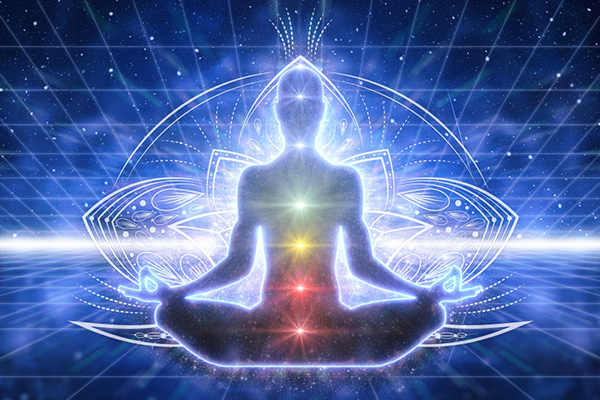self-empowerment
How To Get More Out Of Your Journaling
 I always thought of all journaling as writing one´s thoughts and feelings down on a notepad or in a book- something like a very personal diary. But recently, a very artistic, creative friend posted photos of some exquisite journals she makes. I had simply had to get one.
I always thought of all journaling as writing one´s thoughts and feelings down on a notepad or in a book- something like a very personal diary. But recently, a very artistic, creative friend posted photos of some exquisite journals she makes. I had simply had to get one.
I even got to choose the colour, together with a sigil my friend will add between the layers of the journal. My choice for a sigil was something I am working on manifesting, so seeing that inscribed symbol will be a constant reminder of my manifestation each time I journal.
I asked my friend what her view is on journaling, because she absolutely loves creating these works of art. She envisions her creations being used as perhaps a gratitude journal, a dream journal, a meditation journal, a poetry notebook, as well as for general journaling or recording one’s favourite quotes.
At the beginning of the year, I began a nightly routine before falling asleep in making a mental note of the big and small things I am grateful for, and also to ponder about what I have managed to achieve during that particular day, be it a small chore I had procrastinated on, or something more important.
My fancy new journal will now be used to write down all the things I am grateful for at the end of each day, as well as recording my achievements. I feel it will have more impact written, and will be good to look back on, because I tend to be my own worst critic when something doesn’t get done.
Journaling is going to help me realize that I have really accomplished much as I could possibly get around to on any given day, and that I have done the best I could with the time and energy available to me.
Start Your Healing Journey Today
 Yesterday afternoon, I decided to take the bus to the discount grocery store in my area. They are well-known for the best prices in town. When I came out of the store there was a storm brewing. Waiting for my bus ride back, the mounting storm grew worse. Intense lightning strikes were soon followed by pouring rain. I was a little distressed, as my groceries were getting soaked.
Yesterday afternoon, I decided to take the bus to the discount grocery store in my area. They are well-known for the best prices in town. When I came out of the store there was a storm brewing. Waiting for my bus ride back, the mounting storm grew worse. Intense lightning strikes were soon followed by pouring rain. I was a little distressed, as my groceries were getting soaked.
But I was not afraid.
Before my journey, I placed an uncut amethyst cabochon around my neck, and also donned a more traditional amethyst ring. Amethyst stabilizes the crown chakra, the highest portal that connects us to the Universe.
A year ago, when I moved into my current apartment, I was still very fearful of thunderstorms, especially living on the top floor of my apartment building. My remedy at that time was diffusing high-value essential oils, such as frankincense and sandalwood.
Years prior to my body-mind-spirit recovery journey, I was so intensely scared of storms that I had to have the news on in the basement of my ex-husband’s house.
It is by tapping into such personal conquests of my own fears, that I hold sacred every client’s concern. Worries about love and relationships, job security, and many other life challenges abound in the aftermath of the COVID-19 pandemic. But by remembering my own intense traumas and self-empowerment journey, I can embrace their life stressors. I don’t judge their fears and worries. I only step in their shoes through my memory portal.
Learning about the chakras and aura, after a life changing psychic reading that set the wheels in motion for my spiritual awakening journey nearly ten years ago, I started the courageous process of clearing my severely obstructed spirit. I’m not 100% of where I need to be yet in every aspect of my spirituality, but I do have a solid track record now to look back upon.
Finding The Light Within
 When we rely on codependent, toxic relationships, materialism and possessions, and other superficial sources of ‘fulfillment,’ it creates a weariness within us. It weighs down the soul. It drowns out the inner light.
When we rely on codependent, toxic relationships, materialism and possessions, and other superficial sources of ‘fulfillment,’ it creates a weariness within us. It weighs down the soul. It drowns out the inner light.
Material things and human beings by nature cannot be perfectly reliable all of the time. Material items deteriorate and lose their luster. Friendships and relationships come and go. All that ever truly remains is spirit, and what we do to take care of ourselves. As the world is in dismay in the wake of a pandemic, we can choose to turn to spirit and to take better care of ourselves instead.
While others may choose to descend into lack consciousness, greed or an attitude of entitlement, we can choose an attitude of gratitude, inner peace and joyful living instead.
We have a tremendous opportunity right now to expand our spiritual growth and to empower ourselves with self-care. Many folks don’t realize how useful taking just a few minutes out of their busy day can be!
Adopting a new daily spiritual practice, or simply reading an inspiring book, taking a soothing bath, or buying an aromatherapy diffuser can be uplift the spirit and heal the soul.
There is also crystal energy work, nature walks, prayer, and meditation by a body of water to enhance our joy and connect with the Creator who envisioned all this and brought it all into being.
What we can’t control, we can simply turn over to a Higher Power of our understanding. We can surrender to hope and joy, and let go of our fears. We can say, “This does not have to happen on my timeline, let Your will be done in my life.”
New Beliefs To Live Your Best Life
 The stress and challenges of late and the negative energies in our world in recent times have brought many of us to a point of feeling anxious, frustrated, worried and confused. Some people have even become fearful of leaving their homes. But the time has come to move beyond the negativity and fear and start living our best life again.
The stress and challenges of late and the negative energies in our world in recent times have brought many of us to a point of feeling anxious, frustrated, worried and confused. Some people have even become fearful of leaving their homes. But the time has come to move beyond the negativity and fear and start living our best life again.
Fear is powerful. Fear can keep us trapped in a mental prison of our own making and can prevent us from moving forward. More often than not our worst fears are unfounded and not based in reality or truth.
Belief is also powerful. Beliefs can be negative or positive, true or false. Beliefs originate from within and, again, it is up to each of us to decide if our beliefs are true, or if merely keeps us stuck.
Look deeply at your fears and beliefs. Consider all the fears and beliefs that you sense may be holding you back. Make a list and leave some spaces between each line. When you are done, carefully review your list. Read each line carefully. Once you have done this, think of a truth or positive belief to counteract each of the items on your list and write it underneath each one. Now read the new list out loud to yourself. For example:
False belief: I have no money to do anything.
Counter belief: I do have some money. I have food on my table, a roof over my head, clothes on my back, and I a few extra nickels in my wallet. I do have money to do things. And if I set my mind to it, I can earn some more money.
It is that simple to come up with new beliefs. However, the difficult part is programming each positive statement in your psyche. Therefore, it is important to keep it simple, realistic and truthful.
For example, ‘having a few nickels’ is a simple truth that counters the false belief that you ‘have no money.’ it is simply not true that you have no money. You do have a few extra nickels…and that is indeed money. In other words, you have now erased the lie that you believed and changed it to the truth that is. That is the simplicity of this exercise.
Navigating Energy Challenges – Manual Versus Automatic
 I had always been fascinated with driving a stick shift car, as my dad drove several such vehicles in my childhood years. On our third date, my ex-husband took me to an empty parking lot and showed me the ropes on how to drive a stick shift. However, despite his valiant attempt to teach me, I failed miserably.
I had always been fascinated with driving a stick shift car, as my dad drove several such vehicles in my childhood years. On our third date, my ex-husband took me to an empty parking lot and showed me the ropes on how to drive a stick shift. However, despite his valiant attempt to teach me, I failed miserably.
I reflected on this experience recently, synthesizing an analogy to what I had experienced twenty-five years ago, and found an interesting correlation with my chakra recovery journey.
Also known as Kundalini awakening, the chakra recovery process has not been an easy one for me. I literally felt like I was going to die on many occasions. Six years into this journey, I still incorporate daily energy self-care in the form of meditation, visualization, Epsom salt baths, aromatherapy, and other spiritual practices.
But I have noticed progress! My mind is so much clearer these days, and my sleep more efficient. Most of all, I radiate more kindness, truth, and an open mind of late. And I do believe the best is yet to come!
This reminded me of the ease with which one usually drives an automatic transmission vehicle. To me this is analogous to the ultimate goal of spiritual self-care: to be able to harness the energy of a fully-tuned, balanced chakra system and apply it to everyday life. A person naturally flowing with energy is able to handle more challenging situations with greater ease. Once the crown chakra starts to open, this is when innovative, eternal wisdom flows through. Then we can begin to grasp the rhythm and precision necessary to operate our energy more fluidly and automatically, instead of like a ‘stick shift.’
The Importance Of Self-Investment
 When I was younger, I thought of self-investment as ‘self-indulgence.’ However, as I grew spiritually, my guides made me aware that this was far from the case. In fact, I have learned that self-investment is a necessity – particularly in today’s world!
When I was younger, I thought of self-investment as ‘self-indulgence.’ However, as I grew spiritually, my guides made me aware that this was far from the case. In fact, I have learned that self-investment is a necessity – particularly in today’s world!
What can self-investment do for you? Well, it helps to calm your emotions and ground your energy. You feel more in control of your overall situation – whatever that may be.
It can also help prevent burnout by reducing stress, inducing a sense of calm, and minimizing anger, frustration, and depression, while boosting self-esteem! It may further help increase your sense of focus, aid concentration and thus help you deal with any current tasks.
Self-investment also helps you feel much more optimistic and increases your sense of happiness, thus attracting more of the good that the abundant universe has to offer you. It aids you in tapping into your higher self, connecting with the Divine, and utilizing your fullest potential in life.
Sounds great, right? But how does one go about implementing self-investment in a modern, busy life? Consider the following strategies:
Manage Your Time
Most people feel that they cannot self-invest as they never have the time to do so. However, why not draw up a timetable for your week and schedule some me-time? Taking time to do so will pay many dividends for your overall well-being, and what is more important than that?
Drawing up such a schedule will allow you to incorporate healthy habits, and it is the correct kind of habits when it comes to self-nurture that have the most impact. Schedule it: whether you like singing in the bath, cooking delicious healthy food, taking a brisk walk before bedtime, or planning for an early night!
The Secret To Attracting A Magical Relationship
 Prior to calling a psychic, you may have a certain level of worry or anxiety around a particular topic, or you might be given a nudge by your spirit guides to get insight and clarity to help you move forward toward our goal. Many people ask me in readings if I see something manifesting in their life they have wanted for a long time, or the successful outcome of something they are currently hoping to achieve.
Prior to calling a psychic, you may have a certain level of worry or anxiety around a particular topic, or you might be given a nudge by your spirit guides to get insight and clarity to help you move forward toward our goal. Many people ask me in readings if I see something manifesting in their life they have wanted for a long time, or the successful outcome of something they are currently hoping to achieve.
A psychic advisor can confirm if you are on track and anchored in our power. When I do a reading, I can see a person’s soul purpose and where they currently are on their spiritual path. I can also see the likelihood of an event happening or not, based on previous events they’ve been through, or perhaps a current spiritual lesson they are undergoing. However, what I find callers don’t always realize is that for some of the questions they ask in readings they already hold the key to not only the answers, but also how to make things happen that they may be leaving up to fate.
Whether something is going to happen in your life, or not, is mostly determined by your own thoughts and actions. For instance, if someone calls me for a reading and wants to know if things will move forward with a particular person they are romantically interested in, there are many ways the situation can potentially play out. And the outcome will depend mostly on the caller’s own thoughts, ideas, beliefs, fears, energy frequency, and behavior patterns.
The early stages of a relationship and dynamics of love can be a funny thing. I liken it to ‘reverse psychology’ in the etheric world. I say this because what I find works most often in attracting the love of our potential partner and get their attention is somewhat counter-intuitive to what we might assume.
For example, the old saying it is best to ‘play hard to get,’ holds far more value than we may think. Granted, it does take a lot of self-discipline to pretend we’re not as interested in someone as we really are, but I can guarantee you that energetically it will pay off.